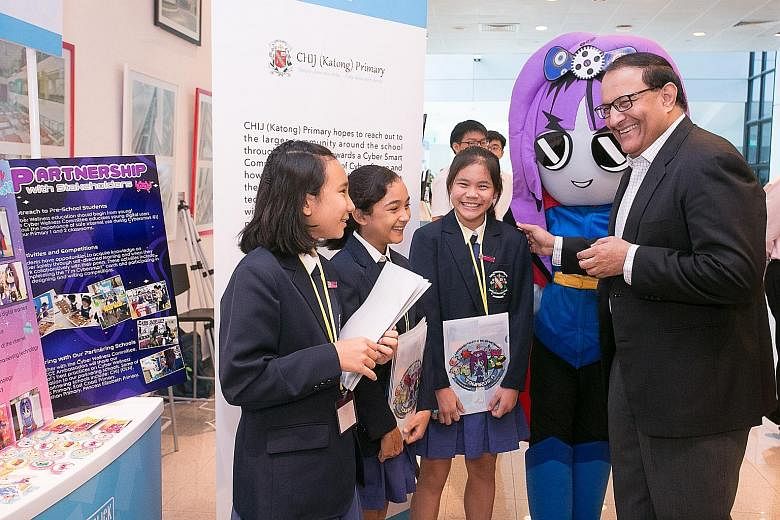Laws being drawn up to counter the scourge of fake news will "not be sufficient" and everyone has to play his part to protect Singapore from the danger it poses, Minister for Communications and Information S. Iswaran said yesterday.
The most important line of defence is having netizens who can distinguish between real and fake information online, he added.
"Even as we work towards drafting legislation to curb the spread of deliberate online falsehoods, we know that this alone will not be sufficient. Ultimately, the integrity and reliability of the Internet and social media lie in the hands of netizens," said Mr Iswaran, who is also Minister-in-charge of Cyber Security.
He was speaking at the inaugural Better Internet Conference, held at the Singapore Institute of Technology. It was organised by the Media Literacy Council and saw the launch of the sixth Better Internet Campaign - a public education campaign to encourage good cyber habits.
A select committee convened last year to study the issue of fake news submitted a 317-page report to Parliament. The report emphasised the need for a multi-pronged approach and highlighted legislative and non-legislative measures.
The Government is currently working on drafting new laws based on this report.
While digital technology and the Internet have transformed Singapore's media landscape and given citizens the ability to create and share content widely, Mr Iswaran said it also poses a threat to personal privacy, social cohesion and national security.
With no easy solutions to counter this global problem, a well-informed and discerning public remains the first and most important line of defence, he said.
In his speech, Mr Iswaran provided an update on the National Framework on Information, Media and Cyber Literacy, which was introduced last November.
This framework provides a set of content guidelines to public agencies and other groups running digital literacy programmes and will be launched by June.
He said: "We are now consulting academics and relevant agencies on the development of the framework, with content guidelines that can serve as a reference for all organisations in designing their digital literacy programmes."
He commended the Media Literacy Council for working with businesses, community groups and government agencies to raise public awareness and develop education programmes on digital and media literacy.
One such step, he said, was yesterday's Better Internet Conference, where experts discussed how to combat online falsehoods and other cyber challenges. It was attended by about 300 parents, educators and members of the public.
The council introduced two new media literacy resources during the conference - the Get Smart With Sherlock fact-checking starter kit, and the News And Media Literacy Toolkit - a collaboration between the council and Common Sense Education, a California-based non-profit organisation which promotes media literacy.
The Get Smart With Sherlock kit contains lessons to help Singaporeans understand the dangers of falsehoods and how to curb their spread online. The News And Media Literacy Toolkit will be distributed to schools to help students hone their media literacy skills.
Both the campaign and conference were themed 1 Click Away, referring to how fake news and phishing links can be easily accessed and spread with just the click of a mouse button.
Speaking on the theme, the council's chairman, Mr Lock Wai Han, said: "The speed, accessibility and connectedness of information has perpetuated an environment where digital users are not fully conscious, discerning or empathetic of their actions online.
"However, it is heartening to see that Singaporeans are now more invested in efforts to build a safer, smarter and kinder digital environment."


